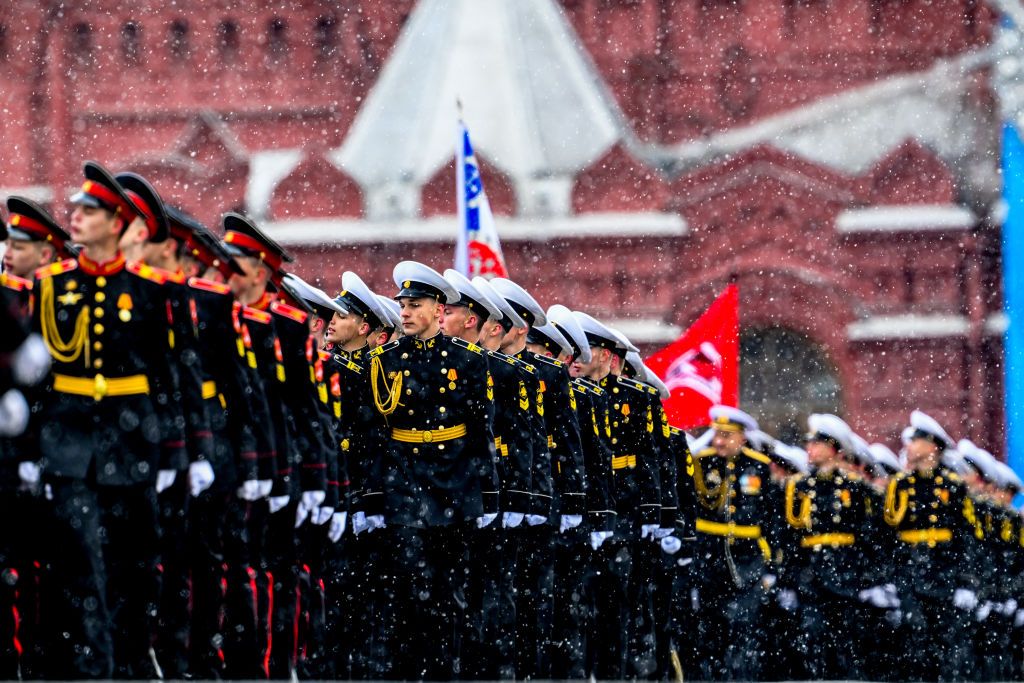Opinion: Elon Musk, ‘Civilization,’ and Ukraine – how computer games shape our reality

A dedicated cover illustration featuring Tesla's Elon Musk and artwork inspired by the Civilization video game series (Heorhii Cherednichenko).

Yaroslav Azhnyuk
Ukrainian entrepreneur (Founder of Petcube, TheFourthLaw.ai, et al.)
For better or worse, memes and video games might now play a more significant role in shaping people’s worldviews than textbooks, movies, and literature. As Russia’s war against Ukraine and the Israel-Hamas war capture global attention, it’s crucial to consider how people form their conscious and unconscious beliefs about the world.
This question extends beyond the billions of global citizens to influential individuals like Meta’s Mark Zuckerberg and Tesla’s Elon Musk. Ukrainians have grievances against both, ranging from unfair content moderation on Facebook and X (formerly Twitter) that censors war-related posts to tolerating Russian misinformation and disinformation and, in Musk’s case, openly spreading Russian propaganda.
Would Musk, Zuckerberg, and Google CEO Sundar Pichai perceive Ukraine differently today if they had had the chance to explore it through games, movies, and literature created by independent, inquisitive minds, free from the influence of Kremlin propaganda and colonial perspectives? How will future genius entrepreneurs and national leaders understand the world when influenced by the media and entertainment of today?
Interestingly, Musk and Zuckerberg share a common interest: They have each named Sid Meier’s "Civilization" series one of their favorite video games.
“I’ve been playing 'Civilization' since middle school,” Zuckerberg wrote. “It’s my favorite strategy game and one of the reasons I got into engineering.”
Musk has frequently confessed his love for "Civilization." His recent biography by Walter Isaacson reveals that he is also a fan of another "Civilization"-inspired game called Polytopia. He even created a list of life lessons from the game titled “Polytopia Life Lessons.” The very first rule: “Empathy is not an asset.” Musk’s brother, Kimbal Musk, shared: “Elon said it would teach me to be a CEO like he was.”
For those unfamiliar, "Civilization" is a seminal game in the strategy genre. Since its first edition in 1991, now at its sixth edition with numerous spin-offs, and a rumored seventh version set to release in 2024, the game lets you guide a chosen nation from 4000 BC to around 2050 AD. Starting with your first settlement as your people develop agriculture, you progress through the ages, expanding your territory and developing technology, culture, economy, and religion. You engage in diplomacy and warfare with other civilizations until you achieve one of the victory criteria.
You can win by claiming eternal glory through culture, launching the first human mission to the stars, establishing global peace through diplomacy, or conquering every other civilization militarily. Along the way, albeit in a simplified manner, players learn a great deal about how the world functions, from the unique characteristics of different nations and World Wonders to the interconnectedness of areas such as healthcare, economy, science, and culture.
The "Civilization" series is often hailed as one of the most influential games of all time, having sold over 60 million copies globally. The number of players could be double that. However, comparing the impact of 100 million "Civilization" players to the audience of a movie like Titanic isn’t quite accurate. A movie might take up to three hours to watch, while a single game of "Civilization" can take around 20 hours, with an average player spending 100-200 hours exploring different scenarios and setups.

The level of immersion differs as well – games are interactive and demand a higher level of understanding, involvement, and decision-making compared to older forms of media like literature, art, music, and movies.
Computer games, including "Civilization," involve a degree of simplification, which is intentional. Game designers strive to balance historical accuracy with engaging gameplay. Condensing the history of human civilization, with its complex social, cultural, and scientific progressions, into a computer game is no easy feat.
It’s also challenging to illustrate how different governmental systems like communism, democracy, and fascism affect a nation or to integrate great philosophers, scientists, artists, and entrepreneurs into the game mechanics. Yet, "Civilization" has been successfully iterating on these elements for 32 years, helping tens of millions of players develop their intuitions about the world.
An interesting topic is how game creators balance the available choice of civilizations you can play. The following 14 civilizations have appeared in almost every iteration of the game in some form: four ancient ones (Egyptians, Babylonians, Greeks, and Romans); three European nations (English, French, and German); four Asian civilizations (Chinese, Indian, Russian, and Mongol); one African civilization (Zulu); one Native American civilization (Aztec); and one “former European colony” (the U.S.).
As you can see, “what is civilization” is not clearly defined. Civilizations span existing and long-perished nations, with histories spanning millennia or relatively recent origins, united by culture, religion, or geography. "Civilization VI," launched in 2016 with 18 playable nations, has now expanded to include an impressive 50 civilizations through regular content updates.
However, if you’d like to play as Argentina, the Philippines, Kenya, Ukraine, or Israel, you’re out of luck. In the latest version of the game, they remain “periphery peoples,” city-states given power and influence only as protectorates and satellites of more “civilized” nations.
As a Ukrainian and longtime fan of "Civilization," I’ve been waiting to see Ukraine as a playable nation since I first played the game at around age seven, which was in 1996 – some 28 years ago.
Given that Ukraine has been fighting a war for survival against its imperial neighbor Russia for the past two years, the topic of Ukrainian identity and cultural diplomacy is more relevant than ever. This urgency is heightened by Russian President Vladimir Putin’s delusional historical narratives, which are broadcast globally.
Only now is the world beginning to realize how inadequate its understanding of Eastern Europe and North Asia has been. Prominent U.S. historian Timothy Snyder highlights that, in American academia, Ukraine has traditionally been studied through a Moscow-centered lens. This is akin to studying millennia of Moroccan history from Paris or examining indigenous North American peoples by focusing on the skyscrapers of New York.
It’s no surprise that Musk denies Ukraine its own agency, as evidenced by his numerous posts on X. He views it merely as a battlefield between to “civilizations” – the U.S. and Russia. Similarly, it’s no wonder that Google, Facebook, CNN, and DW long had their Moscow offices covering the entire region, resulting in a Moscow-biased perspective in their tech and reporting. In many cases, this bias persists.

In "Civilization VI," Ukraine is not listed as a civilization. Kyiv is present in the game as a city-state but is misspelled as “Kiev” – a Russian imperial-style spelling that major global media have long abandoned. Even more egregiously, the in-game Russian civilization has appropriated Ukrainian cultural elements, including its unique unit, the Cossack horsemen warriors, and its unique building, the Lavra church. While Russians culturally appropriating what belongs to other nations might be historically accurate, it’s not the kind of accuracy I was hoping for in a "Civilization" game.
Ukraine is a notable omission when looking at the Central and Eastern European region in "Civilization VI." You can play as Poland, Russia, Hungary, Georgia, and even historical entities like Scythia. This is puzzling, considering Ukraine’s significant historical impact.
The nation began with the Kyivan Rus, the largest state in Europe from the ninth to the 13th century. It was later conquered by the Mongols, united with its neighbors to form the Grand Duchy of Lithuania, and reemerged as a Cossack State in the 17th century. Ukraine briefly regained its independence in 1918 with borders similar to the current ones, along with the sizable colony of Green Ukraine on the Pacific coast in what is now the Russian Far East.
Subsequently, it was subjugated by the Soviet Union, suffered the Holodomor famine-genocide, and endured the largest absolute human life losses of any European state during World War II, emerging with a bitter victory as the Ukrainian Soviet Republic and becoming a founding member of the United Nations.
Ukraine has produced remarkable figures like Serhii Korolev, a pioneer in space exploration, and the extraordinary artist Kazimir Malevich, among hundreds of others who were often executed by the Soviets before the world could recognize their contributions. The nation finally broke free from colonial oppression by declaring independence in 1991, giving up the world's third-largest nuclear arsenal in 1994 for the sake of nuclear non-proliferation, only to see these treaties violated when Moscow invaded in 2014 seeking colonial reconquest. If that isn't the epic story of a civilization that can stand the test of time, I don't know what is.
With this piece, I humbly request that the hardworking teams at Firaxis and 2K Games collaborate on adding Ukraine to "Civilization VII." There's a passionate community of gamers, historians, artists, and even diplomats and politicians who would love to contribute. Given the current global events and heightened interest in Ukraine, it's not just a smart business decision – it's an opportunity to educate people worldwide about a 50-million-strong European nation with a rich thousand-year history that has often been underestimated and understudied.
I understand that game designers, artists, and filmmakers often have a complex relationship with fan requests. I've tried to reach out to the Firaxis team privately and publicly since 2018. It's possible that Firaxis has already considered including a Kyivan Rus civilization led by figures like Olha of Kyiv, Volodymyr the Great, or Yaroslav the Wise in their upcoming "Civilization VII." After writing this piece six months ago, I chose not to publish it to avoid putting pressure on the studio.
However, the recent Tucker Carlson-Putin interview, filled with lies, manipulations, and historical inaccuracies, was the final straw that prompted me to change my mind. Seeing this kind of propaganda widely spread on X by someone like Musk, who speaks about combating misinformation while perpetuating it, raises concerns about how the free world will counter these meme-fueled lies. There's no single solution, but I firmly believe that allowing falsehoods to spread unchecked only serves to empower evil.
Thanks to Maxon Pugovsky, Bohdan Logvynenko, Vakhtang Kipiani, Darka Azhnyuk, Andrey Klen, Serhiy Galyonkin, Darren Loucaides, and Maria Shkarlat for reviewing my drafts.
Editor’s Note: The opinions expressed in the op-ed section are those of the authors and do not purport to reflect the views of the Kyiv Independent.












